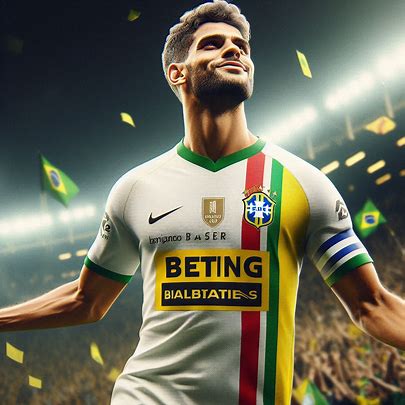Brazilian Football Clubs Secure Over R$1 Billion in Betting Sponsorships in 2025
Brazilian football has reached a historic milestone. All 20 Série A clubs have secured sponsorship deals with betting companies in 2025, pushing total investments past R$1 billion (approximately $197 million). This unprecedented financial surge underscores the growing influence of sports betting in Brazil’s most popular sport, transforming the financial landscape of its football clubs.
The rise of betting sponsorships has reshaped how clubs operate. With companies like Pixbet, Superbet, and Betano leading the charge, these partnerships are more than just logos on jerseys; they’re lifelines for clubs aiming to compete globally. For instance, betting on football (judi bola) has become a cultural phenomenon, driving fan engagement and boosting club revenues through platforms like judi bola. This financial influx allows teams to retain top talent, upgrade facilities, and strengthen their squads, making Brazilian football more competitive than ever.
A Financial Game-Changer for Brazilian Clubs

Betting companies have become the backbone of Série A’s financial ecosystem. In 2025, 18 of the 20 clubs feature betting firms as their primary sponsors, with only Mirassol and Red Bull Bragantino opting for alternative partnerships. Flamengo, for example, has secured a massive R$115 million annual deal with Pixbet, the largest in Brazilian football. Corinthians follows closely with a R$103 million contract with Esportes da Sorte, while Palmeiras, despite resisting betting sponsors, maintains a lucrative R$81 million deal with financial institution Crefisa. These figures highlight the scale of investment pouring into the sport.
Why are betting companies so eager to invest? Football’s massive following in Brazil offers unparalleled visibility. As millions of supporters watch games, betting companies secure top-tier advertising spots on team kits, arena signage, and online channels. Moreover, the legalization of sports betting in 2018 has fueled this trend, creating a regulated market that encourages companies to pour funds into sponsorships. This financial boost has allowed clubs to avoid selling young talents prematurely, a common issue in the past due to budget constraints.
Transforming Club Operations and Fan Engagement
The impact of these sponsorships extends beyond balance sheets. Clubs like São Paulo, with a R$52 million-per-season deal with Superbet, have invested in infrastructure, such as modern training facilities and youth academies. This strengthens their ability to nurture homegrown talent. Meanwhile, teams like Botafogo, backed by Parimatch, have used sponsorship funds to offer competitive contracts, keeping star players in Brazil longer. Such financial stability fosters a more professional approach to club management, moving away from reliance on sporadic player sales.
Fans are also feeling the effects. Betting companies are integrating digital platforms, like fan tokens and interactive betting apps, into the matchday experience. This creates new ways for supporters to connect with their teams. For example, Sportingbet, Palmeiras’ new sponsor, has launched fan-focused campaigns, such as exclusive promotions during matches. These initiatives not only boost engagement but also deepen the bond between clubs and their supporters, making football more interactive and immersive.
Ethical Concerns and Regulatory Challenges
However, this boom isn’t without controversy. The heavy presence of betting sponsors raises ethical questions. Critics argue that the normalization of gambling in football could encourage irresponsible betting, particularly among younger fans. The Brazilian Football Confederation (CBF) has taken steps to address this, banning unlicensed betting operators from sponsoring clubs in national competitions. For instance, clubs like Atlético Paranaense and Grêmio had to suspend deals with unlicensed operator Esportes da Sorte in 2024 to comply with regulations.
Regulation remains a hot topic. The Brazilian government is tightening oversight of the betting industry to ensure responsible practices. Experts like Fátima Bana, a marketing executive, emphasize the need for transparency to balance financial benefits with social responsibility. As betting companies invest heavily—R$600 million in clubs and R$160 million in federations in 2025—there’s growing pressure to protect vulnerable audiences from gambling’s potential harms.
READ ALSO: The Thrills and Excitement of Online Football Betting: Unveiling the Entertainment Factor
A Global Trend with Local Impact
Brazil’s betting sponsorship surge mirrors global trends, particularly in Europe, where 66% of top-division clubs have betting deals. Yet, Brazil’s reliance on these partnerships is unique. Unlike Europe, where bans on front-of-shirt betting sponsors are emerging, Brazil’s market is still expanding. The Games and Lotteries association reports that betting firms will invest R$2 billion across football sponsorships and advertising in 2025, including R$320 million for TV broadcasts and R$790 million for stadium signage.
What does this mean for the future? The financial windfall has elevated Brazilian football’s global profile, enabling clubs to compete with European giants. However, the sport must navigate the delicate balance between profit and responsibility. As betting companies continue to dominate, their role in shaping Brazilian football’s future is undeniable. Will this partnership propel the sport to new heights, or will it spark a backlash? Only time will tell, but for now, the game is thriving.
